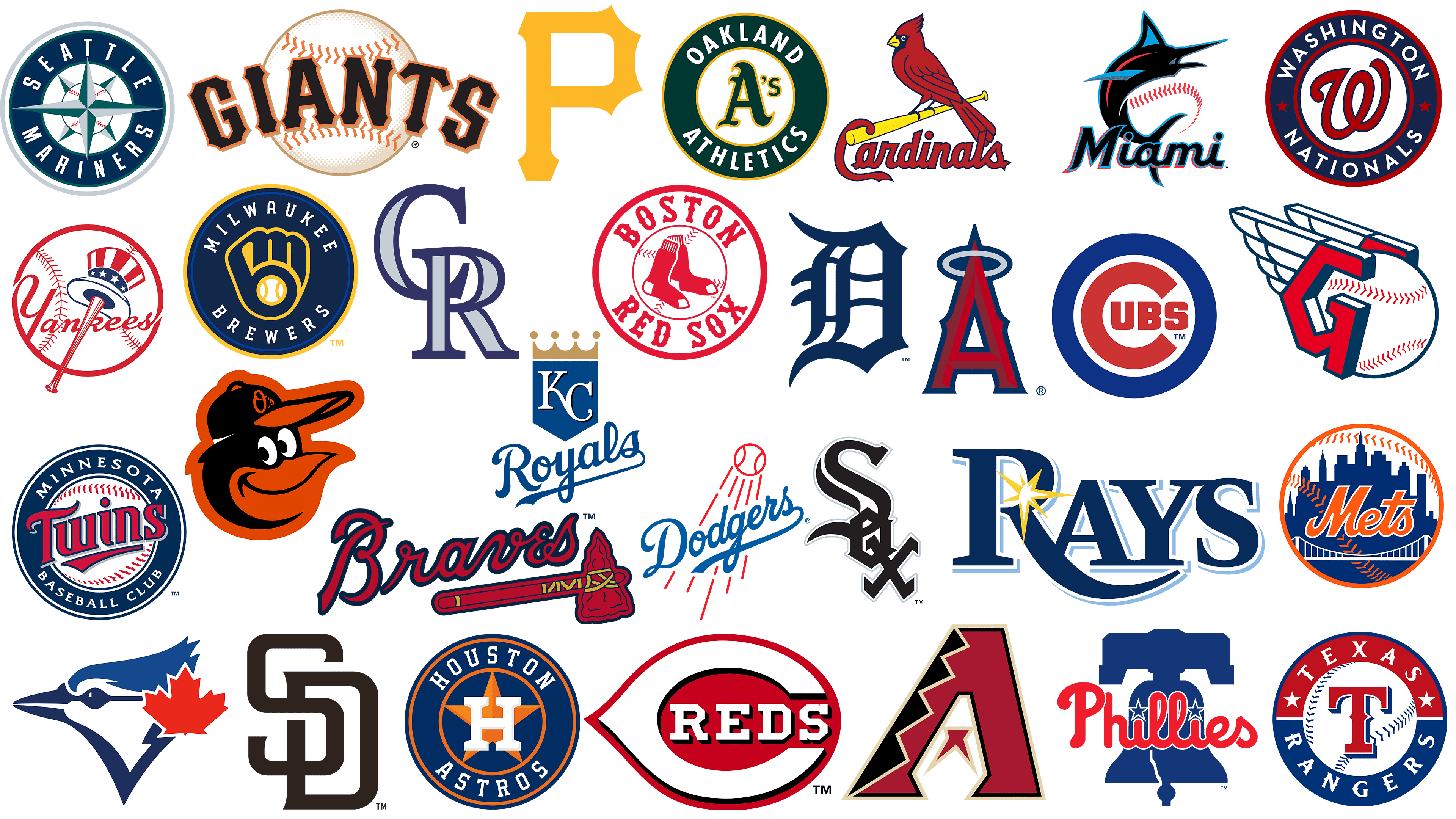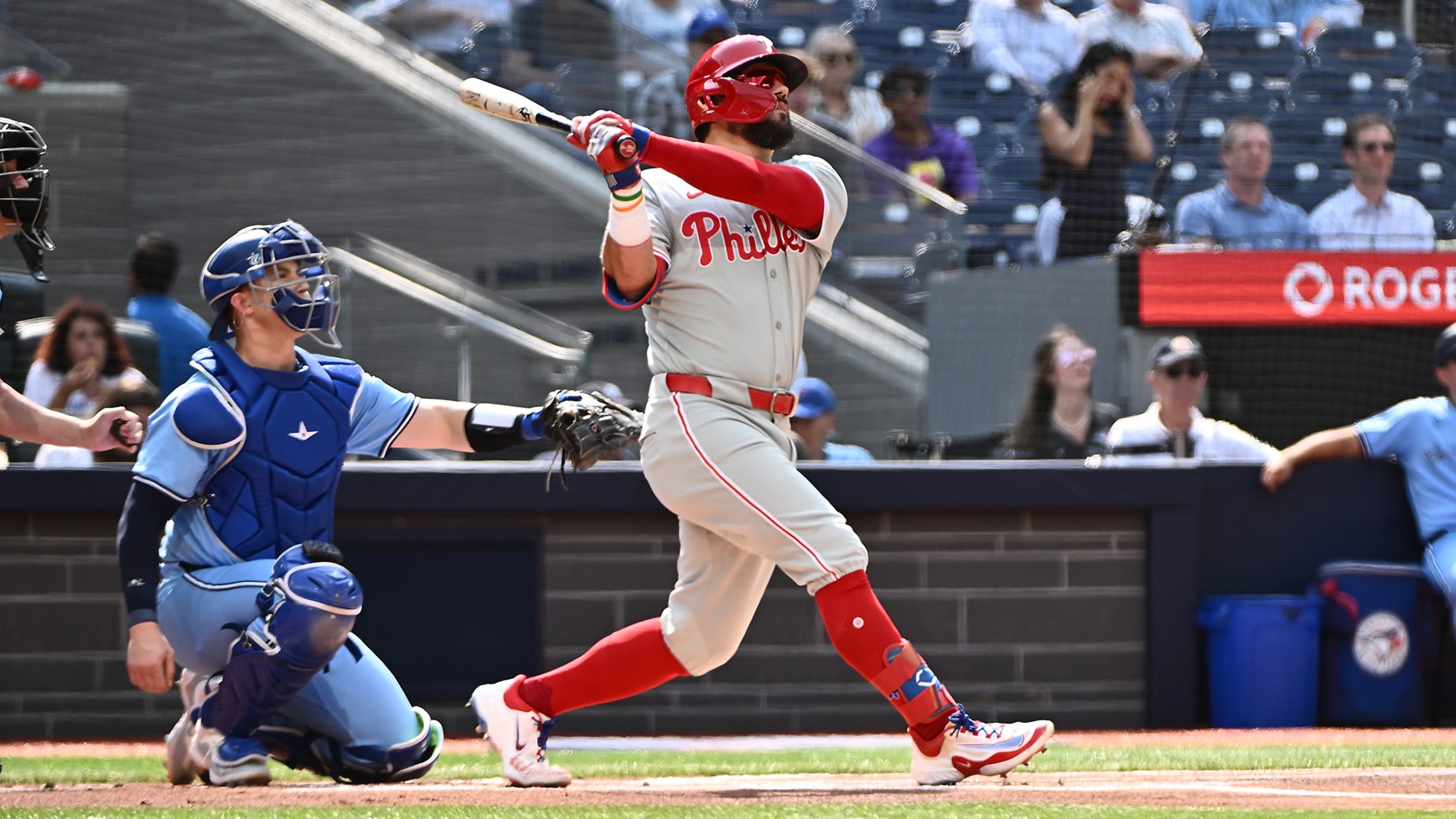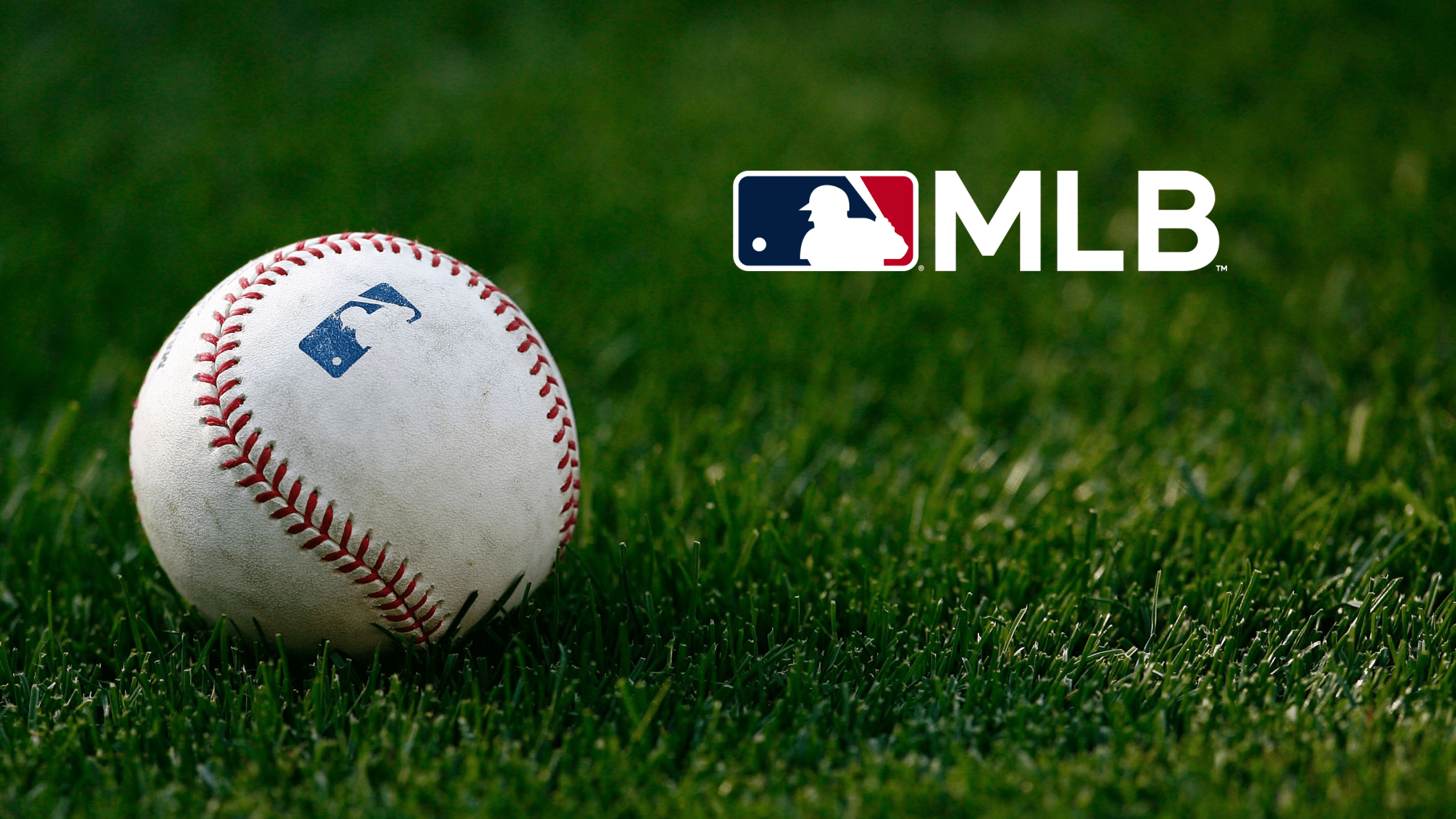MLB Weather And Odds: A Fan's Guide To Game Day Conditions
Baseball, a game of skill and strategy, has another player on the field that often goes unnoticed until it makes a big splash: the weather. You know, like when a sudden gust of wind turns a routine fly ball into a home run, or when a cold snap makes pitchers feel a bit stiff. It's almost as if the sky itself has a say in how the game plays out, and this connection between game day conditions and the final score is something every fan, and especially those who like to place a friendly wager, needs to consider. That, is that, the elements can truly shift things around.
For folks who follow the major league baseball season, from the opening pitch of the 2025 season to the very last out, keeping an eye on the weather forecast for each game can give you a real edge. It's not just about rain delays, which are pretty obvious, but also about the more subtle things like how humidity affects a curveball or how wind might carry a ball out of the park. You know, these small details actually add up.
Understanding how mlb weather and odds are linked helps you make smarter guesses about game outcomes. Whether you're playing fantasy baseball, just enjoying the games, or looking at updated odds on ESPN or CBS Sports, knowing about the conditions can help you see things others might miss. So, let's talk about how the weather truly plays a part in baseball's big picture.
Table of Contents
- The Basics of Weather's Influence on Baseball
- How Weather Shifts MLB Odds
- Reading the Forecast for Your Bets
- Real-World Examples from the 2025 Season
- Smart Approaches for Fans and Bettors
- Frequently Asked Questions About MLB Weather and Odds
The Basics of Weather's Influence on Baseball
Weather is more than just sunshine or clouds when it comes to baseball. It affects everything from how the ball travels to how players feel on the field. You know, a slight change in the air can make a big difference, so it's a bit like an extra player on the roster, really.
Wind: The Unseen Player
Wind is, in a way, a very big factor. A strong wind blowing out towards the outfield fences can turn ordinary fly balls into home runs. This is because the air resistance on the ball is reduced, allowing it to travel further. Conversely, a wind blowing in from the outfield can turn what looks like a sure home run into a simple fly out. It's almost like the ball gets pushed back, so it's a real challenge for hitters.
If the wind blows across the field, it can make things tricky for fielders trying to catch pop-ups. It might also make it harder for pitchers to control their breaking balls, as the wind can give the ball an unexpected push or pull. So, you might see more walks or wild pitches on a windy day, and that, is that, a lot to keep in mind.
- David Leon Partner
- Ibomma Telugu Movies New 2025 Full Movie
- Xnxx Actress Name List With Photo
- Jessica Tarlov First Husband
- Thomas Massie Wife
Temperature: Hot or Cold Pitches?
Temperature also plays a role, especially in how the baseball itself behaves. In warmer weather, the air is less dense. This means the ball faces less resistance as it flies through the air, leading to more home runs and faster-traveling pitches. You know, a hot day can make the ball jump off the bat, which is pretty exciting for fans.
On the other hand, colder temperatures make the air denser. This slows the ball down, making it harder for hitters to get extra-base hits. Pitchers might also find it harder to grip the ball, or their muscles might feel stiff, which could affect their speed and control. So, in some respects, a chilly evening game might favor the pitchers, a bit.
Humidity: A Sticky Situation
Humidity, the amount of moisture in the air, has a subtle but definite effect. High humidity makes the air heavier. This can cause pitches, especially breaking balls, to have more movement. A curveball might break sharper, or a slider might have a bit more bite. Pitchers, like your favorite aces, sometimes love these conditions because their pitches look better.
For hitters, high humidity can make the ball feel "heavier" off the bat, potentially reducing the distance of batted balls. Low humidity, conversely, can make the ball fly further, similar to warm weather. It's really just a slight adjustment, but it matters, you know.
Rain and Delays: Game Interrupters
Rain is the most obvious weather factor. A light drizzle might not stop a game, but it can make the field slick and the ball wet. This affects pitching grip, fielding, and even running the bases. A heavy downpour, of course, means a rain delay or even a postponement. This disrupts the flow of the game and can impact player performance if they have to wait around. Apparently, rain can really mess with a team's rhythm.
When games are delayed or postponed, it can mess with pitching rotations and player rest schedules. This can indirectly affect future games and how teams perform. So, it's not just about the game being stopped; it's about the ripple effect, you see.
How Weather Shifts MLB Odds
Sportsbooks, the places that set the odds for games, pay close attention to the weather. They know these conditions change how games play out, and they adjust their numbers accordingly. It's really about trying to predict the future, and weather gives them more information, too.
Run Totals and Over/Under Bets
The "over/under" or "run total" bet is probably the most affected by weather. If there's a strong wind blowing out, or if it's a very hot and dry day, sportsbooks might raise the run total. This is because they expect more runs to be scored. Conversely, a cold, windy day blowing in, or high humidity, might lead them to lower the run total. They are, in a way, just trying to match the expected game flow.
For instance, if a game at a ballpark known for home runs has wind blowing out, the over/under might be set at 10 or 11 runs. If the wind is blowing in, it could be 8 or 9 runs. It's a direct reflection of how weather impacts scoring.
Pitcher Performance and Strikeout Lines
Weather can also affect individual player odds, especially for pitchers. If it's cold and windy, a pitcher might have a harder time gripping the ball, leading to fewer strikeouts or more walks. Sportsbooks might adjust the "strikeout total" for that pitcher downwards. Similarly, if a pitcher relies on a sharp breaking ball, high humidity might make their pitches even more effective, possibly leading to a slight increase in their strikeout line. It's a bit like giving them an extra boost, you know.
Pitchers who struggle with control might find windy conditions particularly challenging, which could be reflected in higher odds for them to give up runs. So, it's not just about the overall game, but about individual matchups too.
Team Matchups and Moneyline Adjustments
While moneyline odds (which team will win) are less directly affected by weather than run totals, significant weather patterns can still cause shifts. If one team has a lineup full of power hitters, and there's a strong wind blowing out, their chances of winning might seem a little better. The odds might reflect this.
If a team relies heavily on small ball or pitching, and the weather favors that style (like a cold, low-scoring game), their moneyline might see a slight adjustment in their favor. It's about how the weather plays into each team's strengths and weaknesses. Apparently, it's all about finding the right fit.
Reading the Forecast for Your Bets
Being able to read and understand weather forecasts is a skill that can truly help you when looking at mlb weather and odds. It's not just about checking your phone minutes before the game. You want to look a bit deeper.
Reliable Weather Sources
When checking weather, you want to use trusted sources. Official weather services, like the National Weather Service in the US, or well-known meteorological sites, are usually best. They give accurate, up-to-date information. You know, a quick search for "weather [city name] [date]" can usually point you to a good source, like AccuWeather.
Some sports sites, like ESPN, also provide weather updates for games, which can be convenient. However, it's always good to cross-reference with a dedicated weather site for the most detailed information, like wind speed and direction. You want to be really sure, you know.
Understanding Ballpark Microclimates
Many ballparks have their own unique "microclimates." This means the weather right at the stadium can be different from the general city forecast. Factors like stadium design, nearby bodies of water, or tall buildings can create unique wind patterns or temperature pockets. For instance, a stadium near the ocean might have cooler temperatures and different wind patterns than one inland. It's a bit like each stadium has its own personality, weather-wise.
Researching specific ballpark weather tendencies can give you an advantage. Some stadiums are known for being "hitter-friendly" in certain conditions, while others are "pitcher-friendly." This knowledge, combined with the daily forecast, is really powerful.
Watching for Late Changes
Weather forecasts can change, sometimes quite quickly. What looks like a sunny day in the morning might turn into a cloudy, windy evening. It's a good idea to check the forecast again closer to game time, especially for wind direction and speed. A sudden shift in wind can drastically change how the game plays out. Apparently, these late changes can really catch people off guard.
This is particularly important for games where the odds might have been set based on an earlier forecast. If the weather shifts significantly, there might be an opportunity to find value in the updated odds. So, staying alert is key, you know.
Real-World Examples from the 2025 Season
Think about a game from the 2025 MLB season, say, at Wrigley Field, which is known for its wind. One afternoon, the wind was blowing out at 20 miles per hour. The initial run total was set at 9.5. However, as game time approached and the wind picked up, many saw the potential for a high-scoring affair. Indeed, the game ended with a score of 10-8, easily going "over" the total. This just shows how much the wind can truly matter, you know.
Another example might be a chilly night game in Boston. The temperature was around 40 degrees Fahrenheit. Pitchers on both sides seemed to have a bit more control, and the ball didn't travel as far. The game turned into a low-scoring battle, with both teams struggling to get hits. The "under" on the run total was a good choice for those who paid attention to the cold. It's a bit like the cold air was holding the ball back, really.
Then there's the humid night in St. Louis. The air was thick, and the breaking balls from both starting pitchers were just nasty. They had extra bite, leading to a lot of swings and misses. Strikeout totals for both pitchers went "over" what was expected. This is a clear case of humidity helping pitchers, so it's a good thing to look for.
Smart Approaches for Fans and Bettors
Knowing about mlb weather and odds is one thing; using that knowledge wisely is another. It's about combining weather insights with all the other baseball information you gather. You know, it's about putting the pieces together.
Beyond the Numbers: Player Tendencies
Some players perform better or worse in certain weather conditions. A power hitter who struggles with breaking balls might have an even harder time on a humid night when pitches have more movement. Conversely, a contact hitter who thrives on line drives might do well in cold, dense air where the ball doesn't carry as far. It's a bit like some players just click better with certain conditions, you know.
Pay attention to how individual players have performed in similar weather situations in the past. This kind of insight goes beyond just raw stats and adds another layer to your understanding of the game. Learn more about baseball strategy on our site to connect these dots.
Considering Pitcher-Catcher Chemistry in Conditions
The relationship between a pitcher and their catcher is always important, but it can become even more so in tricky weather. A catcher who knows how to call pitches that work best in windy or humid conditions can help their pitcher succeed. They might call for more fastballs on a windy day, for instance, or more breaking balls when the air is thick. It's almost like they have a secret language about the weather, really.
This connection can sometimes overcome difficult weather. A strong battery can adapt and still perform well, even when the elements are challenging. So, it's not just about the pitcher, but the whole unit, too.
When to Hold Back
Sometimes, the weather forecast is too uncertain, or the conditions are simply too extreme to make a good prediction. On days with highly unpredictable winds, or when a sudden storm is expected, it might be wise to just enjoy the game without making any big predictions. You know, it's okay to just watch and see what happens.
There are plenty of other games in the 2025 MLB season to consider. Sometimes, the smart play is to not play at all, especially when the weather introduces too much randomness. You can find more insights on this page for making smart choices.
Frequently Asked Questions About MLB Weather and Odds
Here are some common questions people ask about how mlb weather and odds connect:
Does wind always help home runs in MLB?
Not always. While wind blowing out towards the outfield fences certainly helps, wind blowing in from the outfield can reduce home run totals. Crosswinds can also make things tricky for fielders and affect pitch movement. It really depends on the direction and strength of the wind, you know.
How does cold weather change baseball games?
Cold weather makes the air denser, which can slow down the ball's flight, reducing home runs and overall scoring. Pitchers might also find it harder to grip the ball, and players can feel stiff, potentially affecting their performance. It's a bit like playing in thicker air, so it's a real challenge.
Where can I find reliable weather information for MLB games?
Official weather services like the National Weather Service, or reputable weather sites, are usually the best. Some sports news sites also provide game-specific weather updates. It's a good idea to check closer to game time for any last-minute changes, too.
- Theodore Barrett Wife
- Imogen Lucie
- Who Made That Mess You Did King
- Is Ssense Legit
- Who Is Christian Kane Married To

The Major League Baseball Team Logos And Names

MLB.com | The Official Site of Major League Baseball

MLB Apps | MLB.com